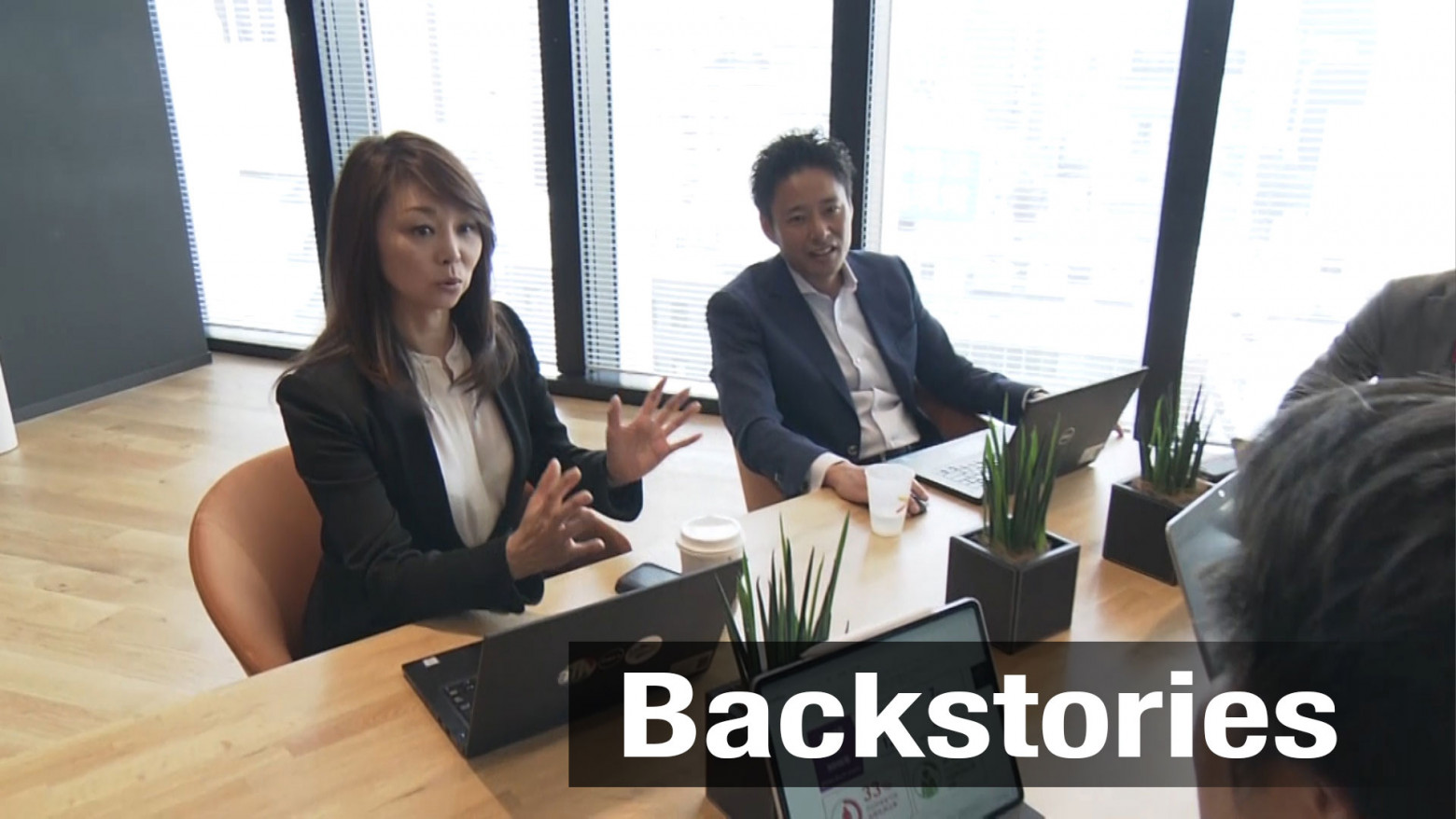The case of a global company
Global consulting company Accenture ranked top in the 2018 Thomson Reuters' Diversity and Inclusion Index.
The firm announced in 2017 that it aims to achieve a gender-balanced workplace by 2025, with 50 percent women and 50 percent men. But its Japanese branch used to lag far behind.
Slow to change
Akiko Horie is a managing director and inclusion & diversity leader at the Japan office. When she joined the company in 1993, she says, there were limited opportunities for women. "There were few female managers, so we had no female role models. Apart from non-Japanese managers, there were virtually none."
But that slowly changed as its global headquarters began to focus on empowering women in the workplace about 20 years ago. She remembers that male executives at the Japanese branch were skeptical at first.
"I think our senior managers understood the policy as an order from abroad and some of them took it negatively, saying that it goes against Japanese culture," she says.
But as the company held training sessions to dispel gender bias, gradually, the idea has gained traction. The ratio of female managers has increased from nine to 16 percent over 10 years.
Now, the Japanese branch aims to reach even higher ... their goals are now 33 percent female employees and 20 percent female managers by 2020.
But Horie says there still remain mental hurdles. "I feel that there is still the notion of division of labor by gender, so I often encourage women to take the initiative if there is something they want to do."
The firm is also now mentoring young entrepreneurs to weather Japan's conservative business environment. Among them is Atsuko Horie, founder of an all-female start-up. Her firm offers training sessions to Japanese companies, including for managers who have subordinates raising small children and want to increase the number of female in managing positions. She says doing business with clients often feels like an uphill battle.
"I feel that there are still many male executives who think of me as 'just a young woman' at first. I think the level of awareness of the importance of gender balance is still low," she says. "Men in general think it's not their problem, but they take part in it just to please women or children. That’s sad."
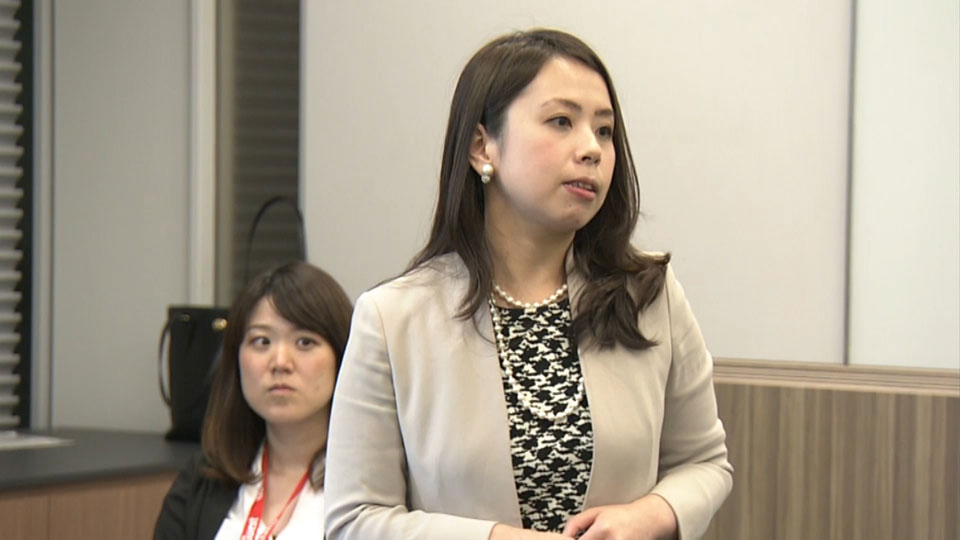
More diversity, more growth
Accenture Japan is also showing support for other marginalized groups. It took part in the annual Tokyo Rainbow Pride 2019 in April. Horie says people with different backgrounds, orientations and abilities help the firm become more profitable.
"It's important to create a diverse workforce and not just depend on a monocultural society to bring about results. This awareness has helped us grow for five straight years," she says.
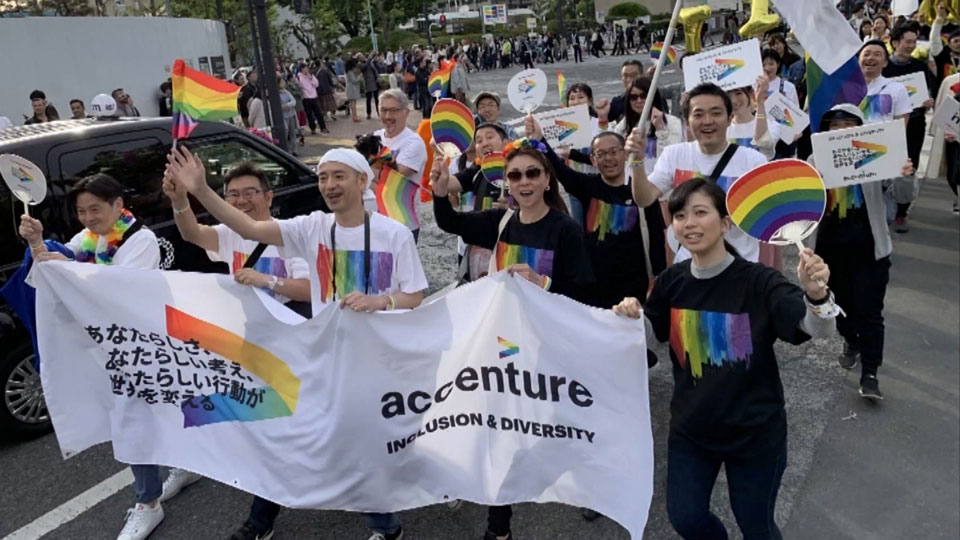
The case of a Japanese firm
FamilyMart is Japan's second largest convenience store chain, with more than 16,000 branches nationwide. The company is now pushing for gender equality in its business.
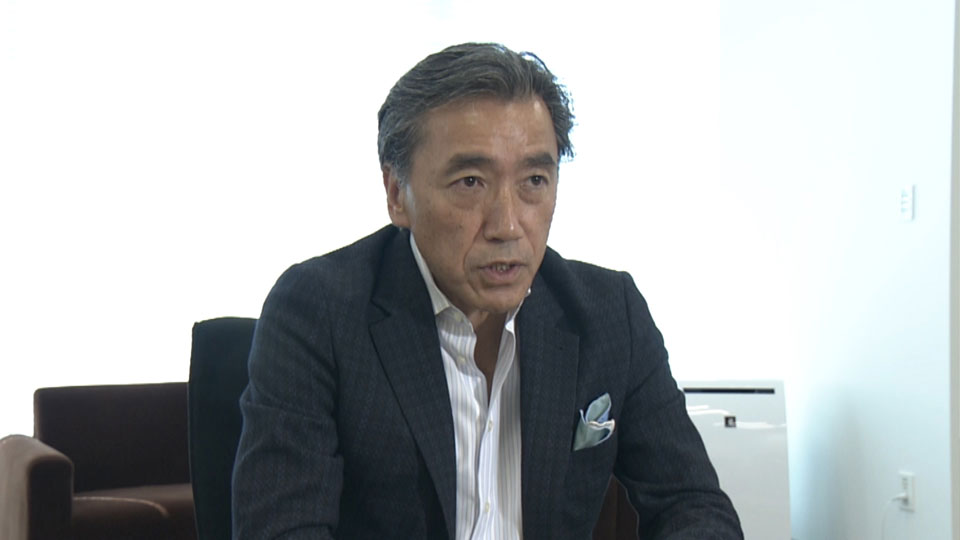
When Takashi Sawada was appointed as the new CEO in 2016, only 2 percent of the company's management positions were filled by women. That was low, compared even to rivals. It shocked him.
"At the store level, there was already a lot of diversity, including staff of various ages and nationalities. But management was lagging far behind. I felt a sense of urgency," he says. "At first, my employees seemed confused because I was the only one to talk about diversity and the idea had not taken root in the workplace."
New leader's decision brings change
Improving management diversity became one of Sawada's top priorities. He set a goal of increasing the proportion of female managers to 10 percent by 2020.
He also gathered female employees from every region and asked them to submit business proposals directly to the headquarters.
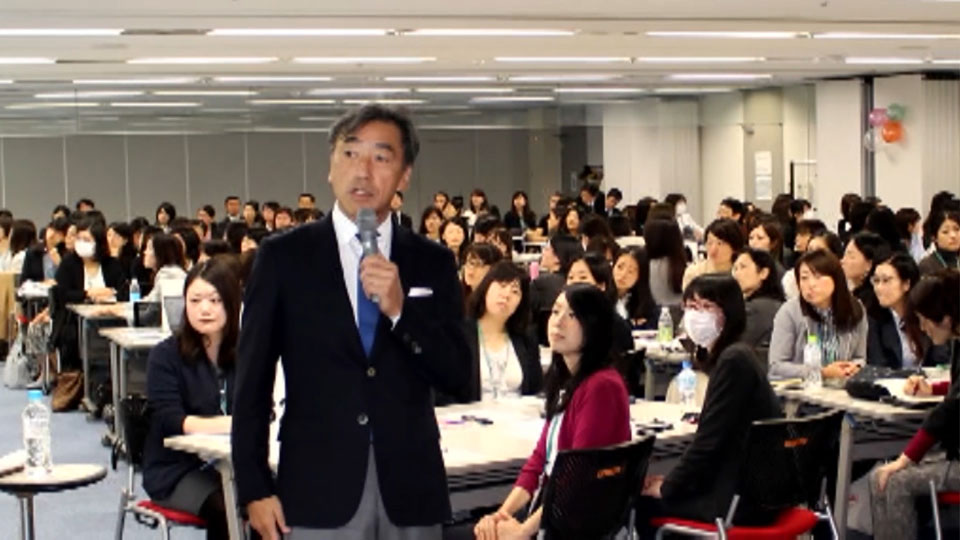
One of them was Kuniko Yamazaki, who is responsible for designing stores. "I was at the meeting, and I really felt the corporate culture was going to change. Until then, there hadn't been much opportunity for us to put forward ideas."
She had the idea of making more family-friendly stores. "I have a grandchild. When we travelled together, my daughter needed to breastfeed and change diapers. But we couldn't find any facilities so we ended up doing it in our car in a convenience store parking lot. I thought it would be great if we could do it in the store," she says.
Yamazaki and her colleagues proposed the idea of a store with facilities that would allow mothers to breastfeed, kids to play, and women to fix their make-up.

Sawada was excited about the concept. "I thought it was a good idea. It's wonderful that my employees try to do something new for our customers and stores. I want an organization in which my staff are stimulated and encouraged to generate ideas," he says. "I don't think every idea will be successful, but everyone will grow by challenging themselves. It's very important to take on something new because the company won't grow if its employees don't."
Yamazaki's idea was put into practice soon after, and the new store was opened in Fukui Prefecture a year ago.
Store staff say that there's been a big increase in female customers and families with children.
The proportion of women in management positions in the firm rose from two to three percent in 2019, but it's far from the current goal of 10 percent by 2020. Sawada is getting impatient. "Sadly, our efforts are insufficient. I think change in awareness among those in seniour positions is most important. When they begin to take this seriously, the situation will change drastically."
Sawada believes companies need to ditch the old management style and adjust to reality in order to survive, as Japan's population continues to shrink and consumer power declines.
"The last four decades were a period when customers would buy whatever we put on the shelves. But that time is over," he says. "We need to urgently adapt and improve our services. Unless we can turn our company into one that reflects various values, including women's, there will be no future for us."
Accenture and FamilyMart have something in common -- the initiative of the company's leaders and the strong belief that a diverse culture enriches the organization's future. Whether Japan can maintain its power and improve its equality rank likely depend on whether many more of its leaders will address the issue.
